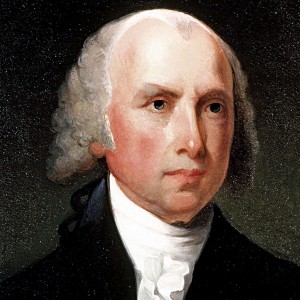Which diplomatic leaders have been the most significant in US history? I think it is incredibly difficult to judge the significance of a diplomat. Diplomatic leaders are called upon in times of crisis and so one must take into account the seriousness of the situation a diplomat is dealing with and the effectiveness of his or her diplomacy in diffusing that situation. Creating a top ten list of the most successful American diplomatic leaders (1 being the most significant to 10 being the tenth least significant) is challenging due to the nearly three and a half centuries of US diplomacy and the changing historical contexts over the years. My objective in this post is actually to discuss a very insignificant US diplomatic leader, which I will get to in a short while. In the meantime, I’ll provide a short list of a few significant diplomats who found success in their diplomacy.
- Benjamin Franklin. How could I not include Ben Franklin, father of electricity? During the American Revolution Franklin served as a US ambassador to France. During these years he balanced diplomatic relations with Britain and France, convincing the French to fight alongside the Americans while negotiating peace treaties with Britain.
- William Seward. The American Civil War represented an incredibly significant threat to the existence of the United States. Seward’s ability to keep Britain and France from recognizing the Confederacy as an autonomous state helped ensure Union victory and the existence of the United States as we know it.
- Ronald Reagan. Diplomacy with any government representing a different ideology is always difficult. US diplomacy with the Soviet Union is as difficult as it came. Reagan found success in being flexible and being willing to compromise during his relations with Soviet leader Mikhail Gorbachev.
One of the least significant US diplomatic leaders in US history is William Donovan.
On July 11th, 1941 before the US entered the war, FDR appointed William Donovan as head of the newly created post Coordinator of Information. The purpose of the C.O.I. was incredibly vague, giving Donovan the freedom to organize and run his intelligence agency as he pleased. Donovan was a successful lawyer from Buffalo whose outlandish and unpredictable fighting style during the First World War earned him the nickname “Wild Bill” and a Medal of Honor. He ran against FDR for lieutenant governor of New York on the Republican ticket and lost. But FDR recognized Donovan’s ingenuity and fighting spirit and thought he would be a valuable member of his cabinet.
The Japanese attacks on Pearl Harbor on December 7th, 1941 marked a very real and significant threat to the United States. The attacks shifted the American mood from isolationism to interventionism. And so in 1942, FDR transformed the C.O.I. into the Office of Strategic Services placing it under the jurisdiction of the Joint Chiefs of Staff. With Donovan at the helm, nothing was off limits, from assassinating foreign leaders and engaging in ridiculous kinds of propaganda to conducting absurd covert operations like injecting Hitler’s food with female hormones so that Hitler would lose his mustache and masculine voice. Donovan tried to win the war in a Hollywood style – single-handedly – and that was the kind of diplomacy that suited his style but the efforts of the O.S.S. with a few exceptions, amounted to little in the grand scheme of things.

There are a number of reasons for Donovan and the O.S.S.’s insignificance during World War II. Donovan’s personality is one reason. His fearlessness and recklessness were not traits best suited for a leader of an intelligence gathering agency. Before the creation of the O.S.S. American intelligence agencies were scattered throughout branches of the army and federal government. The US’s inexperience at having a centralized intelligence agency and FDR’s willingness to let Donovan run his own show is another reason. On that same point, Donovan and the Allies’ enemies, the Nazis, Fascists, and Russians had been conducting espionage and cover warfare for decades. They were able to handle the bulk of what the O.S.S. threw at them. Wild Bill Donovan faced a significant task in being put in charge of the O.S.S. but unlike Ben Franklin, William Seward, and Ronald Reagan, he was unsuccessful in his duties as a diplomat.
Donovan never fulfilled his dream of heading a domestic centralized intelligence agency after the war. Maybe it’s best he never did.

